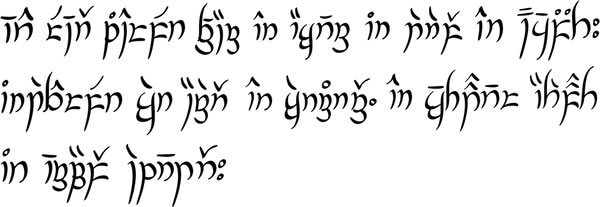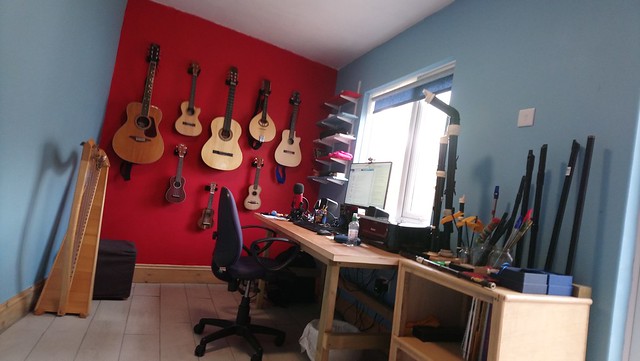Podcast: Play in new window | Download

Here’s the latest news from the world of Omniglot.
New language pages:
- Yele, possibly a language isolate spoken on Rossel Island in the Louisiade Archipelago in east of Papua New Guinea.
- Hamtai, a Southeast Angan language spoken in Morobe and Gulf provinces in Papua New Guinea.
New constructed script: Pakis (Fern) Alphabet, which was created by Reza Sumanda for fun and as an alternative way to write Indonesian.

New constructed script: Melronian, which was invented by Murray Callahan for his conlang of the same name.

New adapted script: Tengwar for Lingala (Tengwala), a way to write Lingala with Tolkien’s Tengwar alphabet devised by Paul Mbongo.

On the Omniglot blog there’s the usual Language Quiz. See if you can guess what languages there are:
Here’s a clue: this language is spoken in Ethiopia.
The mystery languages in last week’s language quiz were: Isnag, a member of the Northern Luzon branch of the Philippine language family spoken in the north of Luzon in the Philippines.
And Blaan (B’laan), a member of the South Mindanao branch of the Philippine language family spoken in the south of Mindanao in the Philippines.
They are related, as they both belong to the Philippine branch of the Malayo-Polynesian language family.
I forgot to mention in the recoding, but I also made improvements to the Marma language page.
If you celebrate Christmas or anything else at this time of year, I hope you had a good one, and I wish you a Happy New Year for 2025.
For more Omniglot News, see:
https://www.omniglot.com/news/
https://www.facebook.com/groups/omniglot/
https://www.facebook.com/Omniglot-100430558332117
You can also listen to this podcast on: Apple Podcasts, Amazon Music, Stitcher, TuneIn, Podchaser, PlayerFM or podtail.
If you would like to support this podcast, you can make a donation via PayPal or Patreon, or contribute to Omniglot in other ways.
Radio Omniglot podcasts are brought to you in association with Blubrry Podcast Hosting, a great place to host your podcasts. Get your first month free with the promo code omniglot.
















